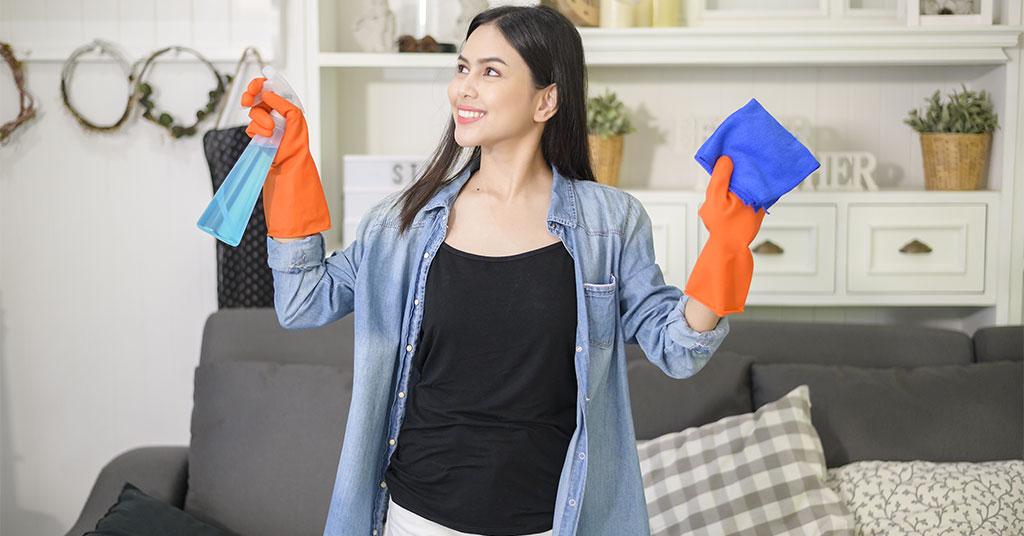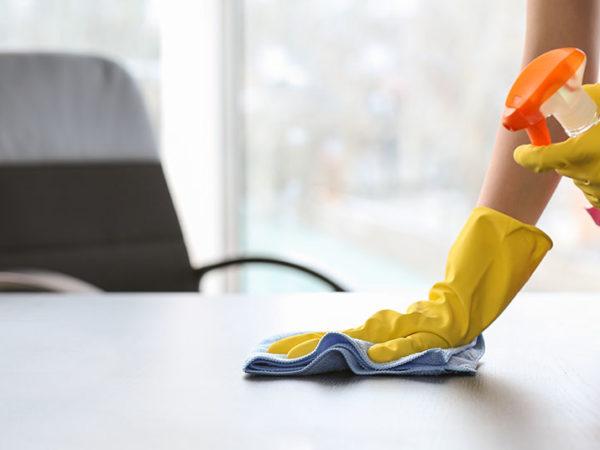
If you or a family member has been exposed to COVID-19, you must deep clean your home. We show you how to sanitise your home, including electronic gadgets, clothing and items you use on a daily basis.
The key to preventing the rapid spread of the disease is to embark on a systematic deep clean with a focus on high-touch areas.
Sanitise all shared surfaces
Deep cleaning after a COVID case entails sanitising all shared and frequently touched surfaces in the home. This involves cleaning door knobs, taps, light switches, counter tops, staircase railings, toilets and the handles of appliances like the dishwasher, microwave, washing machine and fridge.
The Centres for Disease Control and Prevention (CDC) recommends a daily sanitising regimen that involves cleaning all surfaces with soap and water prior to using disinfectants or sanitisers.
Effective products for sanitising a home post-COVID
According to the World Health Organisation, a solution of ordinary household bleach and water is an effective sanitising agent.
Alternatively, alcohol wipes containing 70 percent alcohol have a high viral and bacterial kill rate.
How to clean a face mask
Cloth face masks have proven effective in preventing the transmission of the virus. They act as a barrier against airborne exposure.
Face masks should be cleaned and disinfected after each use. Johns Hopkins Medicine recommends washing bandanas and face masks in a washing machine. Dry in a tumble drier on a hot setting.
The South African government has urged people to iron their masks after washing.
How to sanitise gadgets and devices
Mobile phones, keyboards, remote controls and gaming controls are high risk when it comes to COVID-19 transmission. The electronic items are sensitive to moisture, so bleach and other sanitising agents are not suitable.
Alcohol wipes and pads are effective, but UV sanitising wands and UV mobile phone sterilisers have become increasingly popular in the fight against COVID-19.
Disinfecting clothing after COVID exposure
Clothing, especially the garments worn by the person suffering from the virus, must be properly cleaned and disinfected.
Medical News Today recommends machine washing clothes on the highest temperature setting. Use a detergent that contains bleach.
Items should be air or tumble dried and ironed.
Top deep-clean COVID tip – steam clean carpets, upholstery and curtains
Surfaces are the main culprits when it comes to harbouring the virus, but carpets, curtains and furniture upholstery can contain dangerous contaminants.
Vacuuming up dust, grime and spores is the first step towards properly sanitising your home. Applying steam lifts deep-seated dirt and kills germs, bacteria and other pathogens, including SARS-CoV-2.
Specialist domestic cleaning companies like Chelsea Cleaning use a combination of steam, stain-removal agents, advanced cleaning formulae and industrial-strength vacuum cleaning to sanitise a house from top to bottom.



